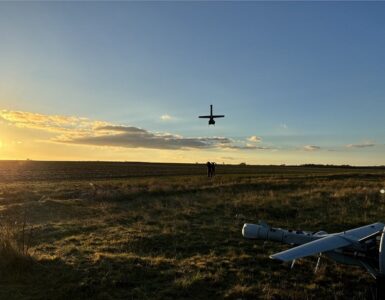CRYPTO
Telegram CEO Pavel Durov said Russia’s proposed crypto ban would lead to a “drain of IT specialists” and “destroy a range of high-tech industries” in a Telegram post on Saturday. The central bank proposed a wide-ranging ban, which includes mining and use of cryptocurrencies in Russia. Mikhail Karhalev, an analyst at Currency.com, thinks crypto regulation in Russia will be similar to Forex market, where crypto companies will need licenses to operate within the country while “individuals will be able to trade crypto on foreign crypto exchanges at their own risk.” [Sources: Telegram, Reuters, RBC.ru]
Andrew Rogozov, former executive at VK, joined the TON Foundation, which supports Telegram’s spinoff blockchain project Toncoin. Rogozov said Toncoin “is on its way to becoming fully integrated into the messaging app,” including tools to reward content creators like Toncoin’s donation bot.(Source: CoinDesk)
SHOPPING
Polish convenience giant Żabka Group has opened the largest of autonomous grocery stores in Europe, beating out Amazon. The unmanned stores are open 24/7 and primarily offer snacks and drinks. [Source: Forbes]
SCIENCE
Researchers from Moscow State University and Skoltech, along with colleagues from Germany and Japan, described the flight mechanism of micro insects. Their findings, published in Nature magazine this month, help us understand how “miniature featherwing beetles can fly at speeds and accelerations of insects three times their size.” [Source: RIA, Nature]
Moscow State University developed a new, plant-based Covid vaccine, which is currently undergoing clinical trials. If successful, it could help cut vaccine costs further. GlaxoSmithKline (GSK) published positive results from its phase three trial of its plant-based coronavirus vaccine last month. [Sources: Mir24.tv, The Hill]
CLIMATE CHANGE
Russia is building a new wintering complex at the Vostok station in Antarctica, which would accommodate 15 researchers and may take four years to complete. Vostok was set up in 1957 and is currently covered with snow after 60 years. [Source: N+1]
Russia’s thawing permafrost is not just Russia’s problem. Journalist Joshua Yaffa wrote an in-depth feature exploring permafrost’s impact on Russian ecosystems and why it is also a global issue. [Source: The New Yorker]






Add comment